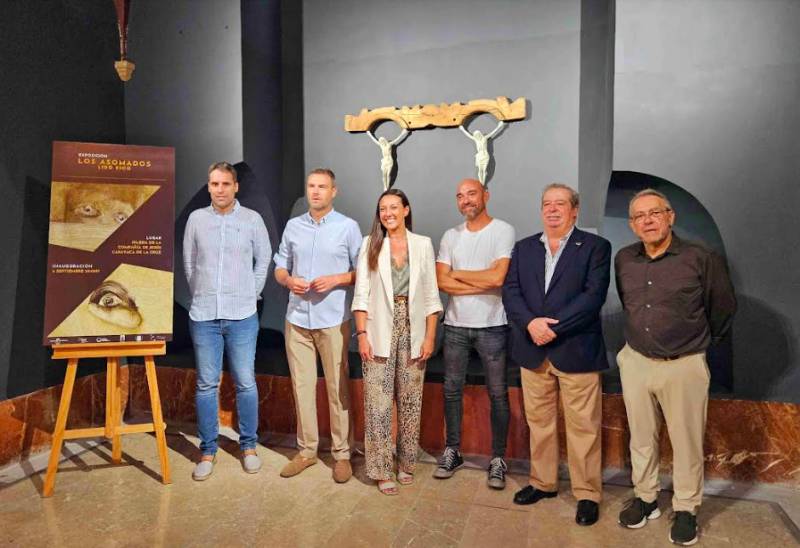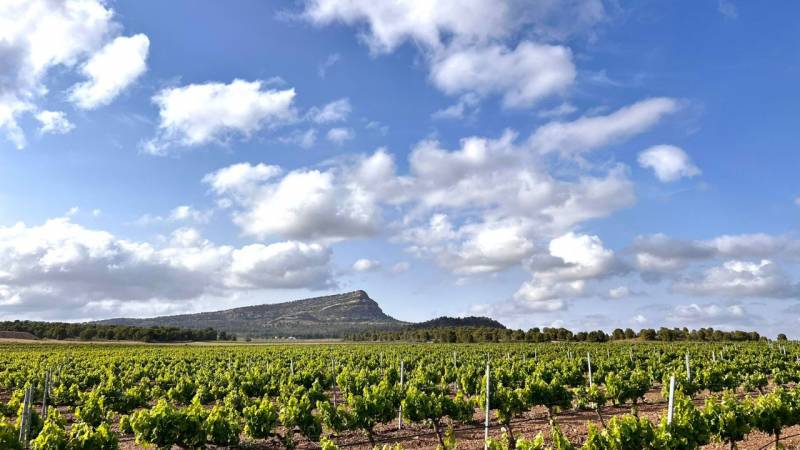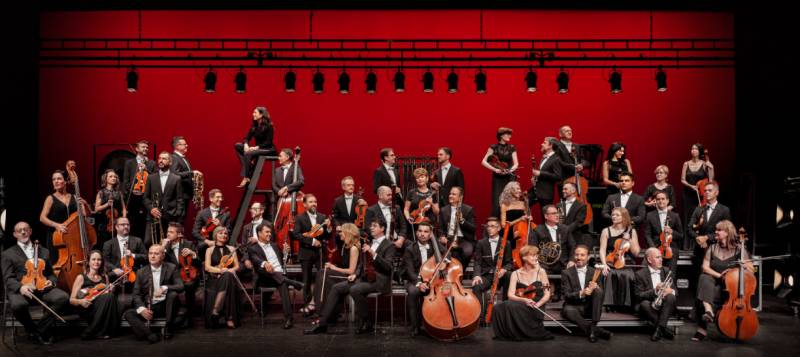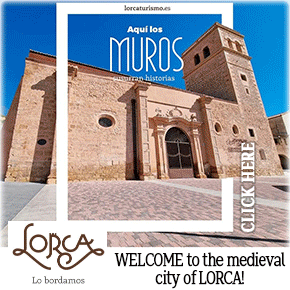- Region
- Águilas
- Alhama de Murcia
- Jumilla
- Lorca
- Los Alcázares
- Mazarrón
- San Javier
-
ALL AREAS & TOWNS
- AREAS
- SOUTH WEST
- MAR MENOR
- MURCIA CITY & CENTRAL
- NORTH & NORTH WEST
- TOWNS
- Abanilla
- Abarán
- Aguilas
- Alamillo
- Alcantarilla
- Aledo
- Alhama de Murcia
- Archena
- Balsicas
- Blanca
- Bolnuevo
- Bullas
- Cañadas del Romero
- Cabo de Palos
- Calasparra
- Camping Bolnuevo
- Campo De Ricote
- Camposol
- Canada De La Lena
- Caravaca de la Cruz
- Cartagena
- Cehegin
- Ceuti
- Cieza
- Condado de Alhama
- Corvera
- Costa Cálida
- Cuevas De Almanzora
- Cuevas de Reyllo
- El Carmoli
- El Mojon
- El Molino (Puerto Lumbreras)
- El Pareton / Cantareros
- El Raso
- El Valle Golf Resort
- Fortuna
- Fuente Alamo
- Hacienda del Alamo Golf Resort
- Hacienda Riquelme Golf Resort
- Isla Plana
- Islas Menores & Mar de Cristal
- Jumilla
- La Azohia
- La Charca
- La Manga Club
- La Manga del Mar Menor
- La Pinilla
- La Puebla
- La Torre
- La Torre Golf Resort
- La Unión
- Las Palas
- Las Ramblas
- Las Ramblas Golf
- Las Torres de Cotillas
- Leiva
- Librilla
- Lo Pagan
- Lo Santiago
- Lorca
- Lorquí
- Los Alcázares
- Los Balcones
- Los Belones
- Los Canovas
- Los Nietos
- Los Perez (Tallante)
- Los Urrutias
- Los Ventorrillos
- Mar De Cristal
- Mar Menor
- Mar Menor Golf Resort
- Mazarrón
- Mazarrón Country Club
- Molina de Segura
- Moratalla
- Mula
- Murcia City
- Murcia Property
- Pareton
- Peraleja Golf Resort
- Perin
- Pilar de la Horadada
- Pinar de Campoverde
- Pinoso
- Playa Honda
- Playa Honda / Playa Paraíso
- Pliego
- Portmán
- Pozo Estrecho
- Puerto de Mazarrón
- Puerto Lumbreras
- Puntas De Calnegre
- Region of Murcia
- Ricote
- Roda Golf Resort
- Roldan
- Roldan and Lo Ferro
- San Javier
- San Pedro del Pinatar
- Santiago de la Ribera
- Sierra Espuña
- Sucina
- Tallante
- Terrazas de la Torre Golf Resort
- Torre Pacheco
- Totana
- What's On Weekly Bulletin
- Yecla


- EDITIONS:
 Spanish News Today
Spanish News Today
 Alicante Today
Alicante Today
 Andalucia Today
Andalucia Today
November 2 and 3 Free guided tour of the cemetery of Jumilla
The 19th century mausoleums and pantheons are predominantly in the Romantic style
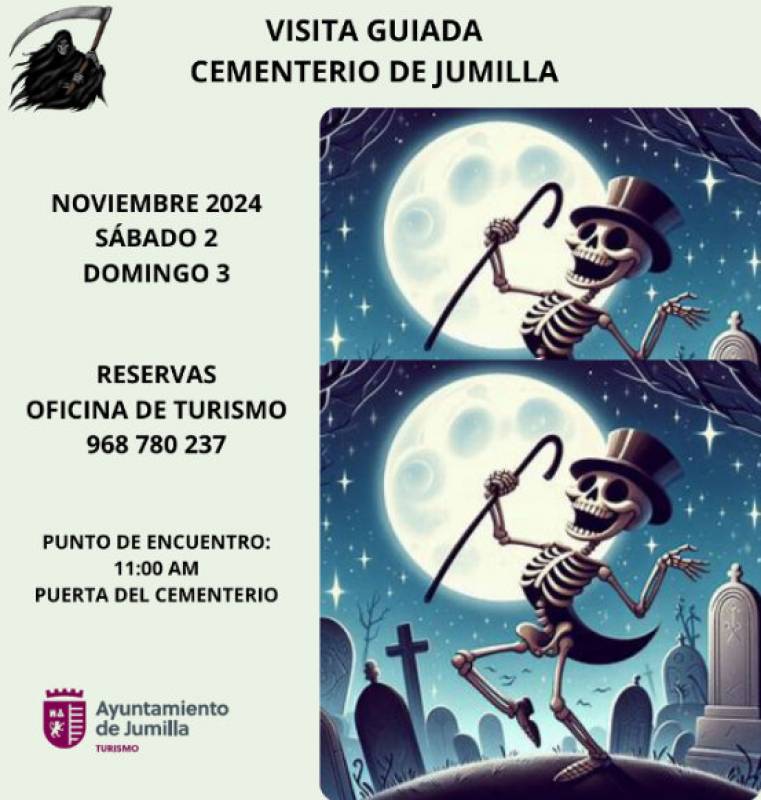 The main cemetery of Jumilla is not only a last resting place for the deceased, but also a site which allows insights into the historical and artistic heritage of the town as well as the values and beliefs of the 19th and 20th centuries.
The main cemetery of Jumilla is not only a last resting place for the deceased, but also a site which allows insights into the historical and artistic heritage of the town as well as the values and beliefs of the 19th and 20th centuries.
At the end of October Jumilla joins with the rest of Spain in celebrating All Saints and All Souls and in preparation for this, the tourist information office is offering a free guided tour of the municipal cemetery on October 28, focusing on not only the principal monuments, but also the history behind the individuals buried within them. On this occasion the tour is being the Matavenidmia wine fair over the last weekend of the month.
The tour starts at the entry to the cemetery at 11.00 and is in Spanish, with participation free of charge.
Call the tourist office to book on 968 780237 or 663 300779.
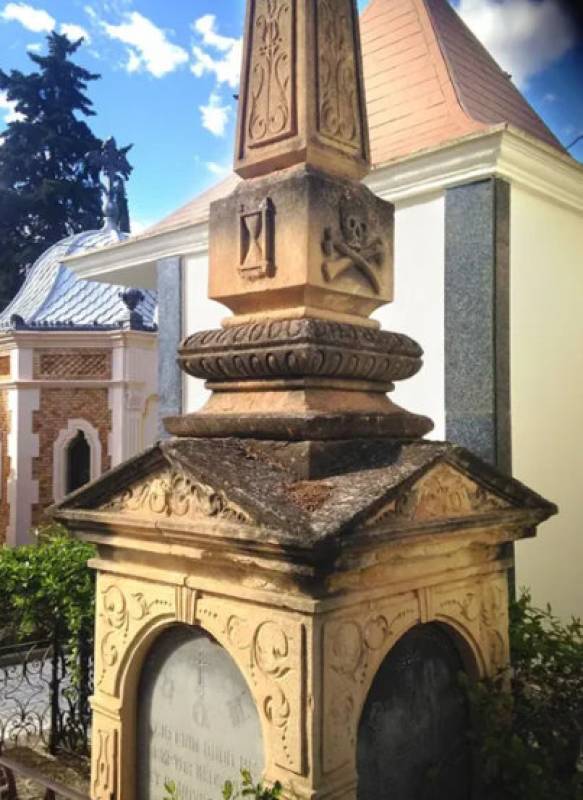 The current burial ground of Jumilla was inaugurated in 1875, and almost as soon as the cemetery was opened it began to be filled with the extravagant and sumptuous mausoleums and pantheons we can still see today, reflecting the prosperity of the late 19th century which was brought about by the thriving esparto grass industry and the survival of the Monastrell vines which were decimated elsewhere in Europe by the phylloxera pest: this led to a huge increase in wine production and exporting, and was the basis of the wine industry which forms the backbone of the local economy today.
The current burial ground of Jumilla was inaugurated in 1875, and almost as soon as the cemetery was opened it began to be filled with the extravagant and sumptuous mausoleums and pantheons we can still see today, reflecting the prosperity of the late 19th century which was brought about by the thriving esparto grass industry and the survival of the Monastrell vines which were decimated elsewhere in Europe by the phylloxera pest: this led to a huge increase in wine production and exporting, and was the basis of the wine industry which forms the backbone of the local economy today.
Among the most remarkable 19th century pantheons are those of the Barón del Solar, an octagonal structure with a dome, and Francisco Pérez de los Cobos, which has an eclectic medieval composition. Equally noteworthy is the obelisk of the Tomás family, which boasts rich iconography including a sand clock and a skull with two tibias alongside. A more modernist approach can be seen in the tomb of José María Bernal and Catalina Jiménez, which is adorned with the sculpture of an angel.
The cemetery is located out of town, on the other side of the hill on which the castle stands, reflecting the same concern over the spread of disease and pestilence which led to the construction of the Arco de San Roque.
For more local events, news and visiting information go to the home page of Jumilla Today.
Oficina de Turismo Jumilla
The tourist office in the centre of Jumilla is easily found by driving straight into the centre of the town along the Avenida de Murcia and following the signposts. The tourist office is alongside the Parque de Don Albano Martínez Molina, where there are a number of parking spaces.
Jumilla, in the north of the Region of Murcia, has become internationally famous over recent decades due to the quality of the wines produced in the municipality, and wine tourism has begun to attract visitors from other parts of Spain and the rest of Europe.
The tourist office is happy to provide a range of maps and leaflets showing the different bodegas which can be visited within the municipality. Some of these form part of the Rutas del Vino de Jumilla, the Jumilla wine route, and can either be visited as a guided tour or sell their produce directly to the public.(see feed below for more details)
However, the town and the surrounding countryside have plenty of other attractions for visitors, and the popularity of Jumilla wines is leading more and more people to discover other facets of the tenth largest municipality in Spain.

These include the spectacular countryside and birdlife in the Sierra del Carche, the historic remains which range from cave paintings and a Roman mausoleum to the castle, the Iglesia de Santiago, the Town Hall and the Teatro Vico, and the gastronomy: rich stews are accompanied not only by the wines of the area but also by Jumilla pears, which also enjoy Denomination of Origin status.
Tourism in Jumilla is not as seasonal as it is in the coastal areas of the Region of Murcia, but the town is at its liveliest during the fiestas in Holy Week and the August Fair, which incorporates the grape harvest celebrations and the Moors and Christians parades.
The Altiplano of the Region of Murcia, which consists of the municipalities of Jumilla and Yecla, is only just over an hour by car from the Mar Menor, Cartagena, Mazarrón, Torrevieja and Alicante, and anyone wishing to visit real inland Spain and world-class wineries is advised to include Jumilla in their schedule.
Opening hours
Summer
Tuesday to Friday from 10am to 2pm
Saturday and Sunday 10am to 2pm
Monday closed
Winter
Tuesday to Friday from 10am to 2pm and 5pm to 7pm
Saturday and Sunday 10am to 2pm
Monday closed
Click for full information about visiting the Jumilla municipality and its wine bodegas: Jumilla section









